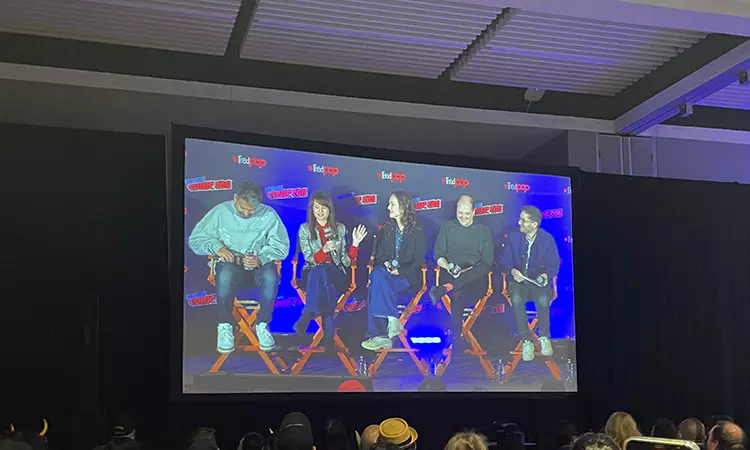The journey of adapting Stephen King’s iconic series, The Dark Tower, has long been a topic of interest among filmmakers and fans alike. During the recent New York Comic Con, renowned director Mike Flanagan shared his thoughts on the intricacies involved in bringing this complex narrative to life on screen. Flanagan, who has previously worked on successful adaptations like Gerald’s Game and Doctor Sleep, reflects on the formidable challenge of The Dark Tower, stating that the only way to do it justice is to remain faithful to the books.
The essence of The Dark Tower lies in its expansive universe, rich with a tapestry of characters and an intricate plot that spans multiple genres and dimensions. Flanagan rightly points out that this narrative doesn’t just jump to grandiose themes; it begins humbly with a focused character-driven story, making it a tapestry woven slowly, one thread at a time. For any adaptation to resonate with audiences, it must honor the roots of King’s storytelling, which meticulously introduces complexity through relatable character arcs.
Flanagan is acutely aware of the pitfalls experienced by previous adaptations. The 2017 film, which featured Idris Elba and Matthew McConaughey, has become a cautionary tale, earning a meager 15% score on Rotten Tomatoes. The failure of that adaptation highlights the critical importance of understanding the source material’s essence. Flanagan’s insights underscore a common mistake: attempting to encapsulate the grandeur of a sprawling narrative too quickly. His approach emphasizes grounded storytelling, beginning with the simple dynamics of character interactions before gradually expanding into the larger landscape of King’s universe.
Additionally, the director acknowledges the overwhelming desire from both creators and fans to dive into the expansive lore too quickly. Flanagan’s belief in a methodical build-up echoes the architecture of great literature itself, where complexity arises naturally from a solid foundation. “You can’t start like that,” he warns, emphasizing that the series offers a rich potential that can only be unlocked through careful storytelling.
As Flanagan gears up for the adaptation, fans are left with one lingering question: when will we see this highly anticipated project? While Flanagan humorously remarked, “it’s taking forever,” his commitment to crafting a faithful rendition of The Dark Tower is reassuring.
The potential success of this undertaking hinges on Flanagan’s ability to honor King’s narrative style and character depth while navigating the challenges that come with adapting a beloved series. Given his track record with prior adaptations, there is optimism that he can achieve a delicate balance that honors the original material whilst creating something new for both fans and newcomers to the franchise.
Adapting The Dark Tower is as much about understanding the weight of King’s legacy as it is about the art of storytelling itself. By focusing on character development and a gradual unfolding of the plot, Flanagan aims to offer an experience that both captivates and resonates profoundly with audiences, paving the way for a new chapter in the cinematic world of Stephen King.

